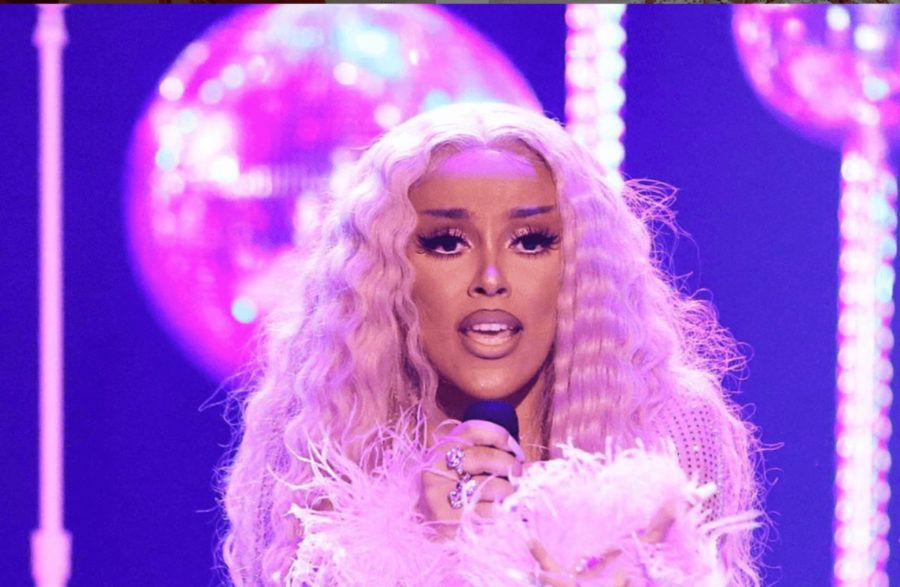“First, they love me. Then they hate me. Then they love me again.” Lyrics from Jay-Z’s “Meet the Parents” perfectly describes the “cancel” culture. Within the past five years, the world has become obsessed with cancel culture. Every week a new celeb is getting called out for either past offensive tweets or remarks that they have made towards a certain group of people. The thing that is the most irritating about cancel culture is that the phrase doesn’t seem to hold the same weight as it used to. The consistency level has dropped off, and instead of it being used to hold people accountable, it has become an all-out witch hunt to shame people, mainly celebrities, for things that they have said in the past.
While I don’t condone people saying offensive remarks based on race, gender, or sexuality, there has to be a line between holding someone responsible and randomly provoking someone by bringing up things that were said when they were in high school. Another flaw with cancel culture is that people pick and choose who they feel should be canceled based on bias. I find it impossible that as a society, we can enforce cancel culture when we can’t even get a good grasp on when to use it properly. If we’re “canceling” somebody, it should be for legitimate reasons no matter who it is. It poses the question, is cancel culture apart of social justice, or is it another intimidation tactic?
So far, in 2020, many stars have gotten the “ax,” but probably the most notable cancellation from this year is Doja Cat. In May, Doja Cat received backlash after videos alleging that she participated in racist chat rooms began to circulate on social media. People also claimed that the ‘Say So’ singer was talking to racists and laughing at their racist jokes on the video chatting platform Tiny Chat. One tweet claimed to show Doja on a chat with white supremacists six days before the news erupted on Twitter. In addition to the chat rooms, the singer was also accused of making a song in 2015 mocking police brutality.
Doja later took to Instagram Live to address what happened and make a public apology. Fast forward a few months later, and Doja Cat’s latest video has amassed 42 million views in a month. She’s been regularly posting on social media, making fun of cancel culture because she knows that she’s good. Her behavior has proven that cancel culture rarely sticks nowadays.
Kanye West is an artist who has been “canceled” numerous times but has yet to receive the consequences that come with being shunned. As it stands, Kanye West has become bigger than ever. Despite his anti-black remarks stating that slavery was a choice and supporting Donald Trump, people continue to root for him. As an avid Kanye fan in the past, I have to say it is hard to cancel someone with a core fan base. When the rapper does say outlandish remarks, he always reminds people that he has bipolar disorder in an attempt to gain sympathy and justify his actions. He is one of the biggest examples that cancel culture is becoming a myth and is only real for certain people.
Shane Dawson was someone I didn’t know about until a few weeks ago when it came out that he made inappropriate comments towards Willow Smith. There is also a video of him going to a little girl’s Instagram page and saying she’s sexy, on top of him making multiple racially sensitive jokes over the years. Despite all of that controversy, he has managed to remain very successful, with millions of subscribers and a multimillion dollars cosmetic collaboration with Jeffree Star.
Whenever he comes under fire, he apologizes and stays low and pops back up like nothing ever happened. Jeffree Star is no stranger to controversy himself and has made countless racist remarks, including calling Jackie Aina a gorilla and making fun of Black women in general. It is upsetting that what keeps them from getting truly canceled is a half-assed apology that their team puts together for them to appease their core fan base and the underlining issue of unconscious biases towards Black and Brown people.
At the end of the day, cancel culture can’t truly be enforced until we’re all on the same page and ready to hold those who deserve it accountable for their actions. We were all raised differently, and I’m not discounting freedom of speech, but when done with disrespect, it needs to be called out. There is also no need to cancel everyone who had said something inappropriate in the past when they have evolved and shown their growth because we all make mistakes. The ones who deserved to be canceled are the ones who visibly have not changed, no matter how many chances they were given. At the same time, let’s not cancel people without knowing the full story.
Is cancel culture real? I would say, at the moment, no. There have been great strides, but there are still a few kinks that need to be worked out until it sticks.
Source: Youtube- Golden Baby.
Follow MEFeater on Twitter, Instagram, Facebook, and Pinterest for more updates.
